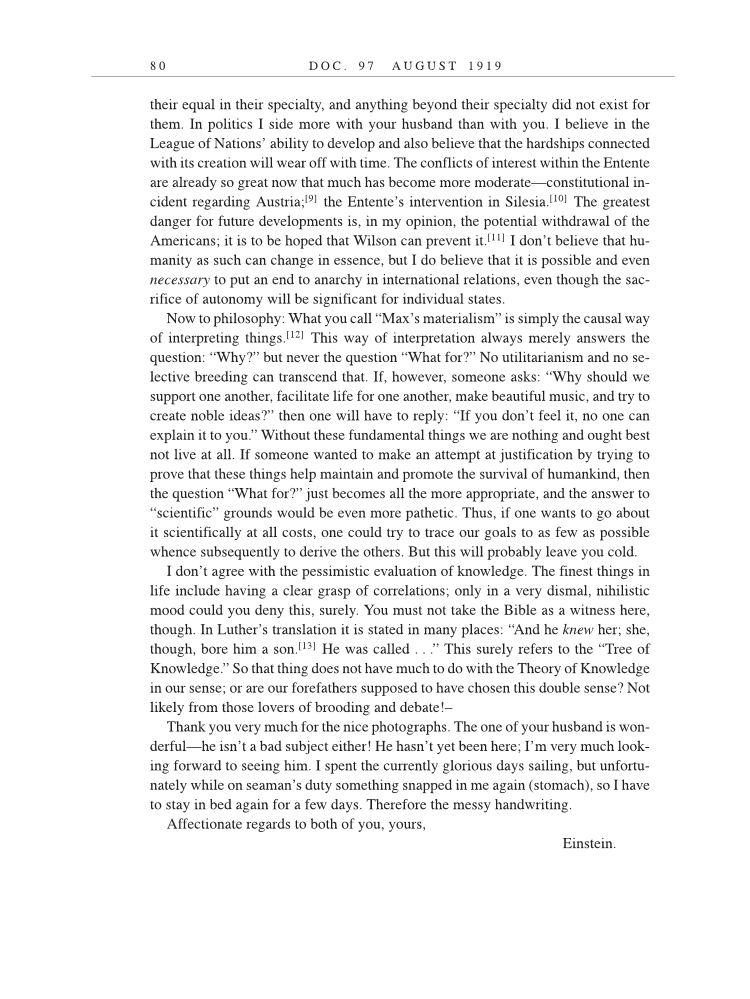8 0 D O C . 9 7 A U G U S T 1 9 1 9 their equal in their specialty, and anything beyond their specialty did not exist for them. In politics I side more with your husband than with you. I believe in the League of Nations’ ability to develop and also believe that the hardships connected with its creation will wear off with time. The conflicts of interest within the Entente are already so great now that much has become more moderate—constitutional in- cident regarding Austria [9] the Entente’s intervention in Silesia.[10] The greatest danger for future developments is, in my opinion, the potential withdrawal of the Americans it is to be hoped that Wilson can prevent it.[11] I don’t believe that hu- manity as such can change in essence, but I do believe that it is possible and even necessary to put an end to anarchy in international relations, even though the sac- rifice of autonomy will be significant for individual states. Now to philosophy: What you call “Max’s materialism” is simply the causal way of interpreting things.[12] This way of interpretation always merely answers the question: “Why?” but never the question “What for?” No utilitarianism and no se- lective breeding can transcend that. If, however, someone asks: “Why should we support one another, facilitate life for one another, make beautiful music, and try to create noble ideas?” then one will have to reply: “If you don’t feel it, no one can explain it to you.” Without these fundamental things we are nothing and ought best not live at all. If someone wanted to make an attempt at justification by trying to prove that these things help maintain and promote the survival of humankind, then the question “What for?” just becomes all the more appropriate, and the answer to “scientific” grounds would be even more pathetic. Thus, if one wants to go about it scientifically at all costs, one could try to trace our goals to as few as possible whence subsequently to derive the others. But this will probably leave you cold. I don’t agree with the pessimistic evaluation of knowledge. The finest things in life include having a clear grasp of correlations only in a very dismal, nihilistic mood could you deny this, surely. You must not take the Bible as a witness here, though. In Luther’s translation it is stated in many places: “And he knew her she, though, bore him a son.[13] He was called . . .” This surely refers to the “Tree of Knowledge.” So that thing does not have much to do with the Theory of Knowledge in our sense or are our forefathers supposed to have chosen this double sense? Not likely from those lovers of brooding and debate!– Thank you very much for the nice photographs. The one of your husband is won- derful—he isn’t a bad subject either! He hasn’t yet been here I’m very much look- ing forward to seeing him. I spent the currently glorious days sailing, but unfortu- nately while on seaman’s duty something snapped in me again (stomach), so I have to stay in bed again for a few days. Therefore the messy handwriting. Affectionate regards to both of you, yours, Einstein.
